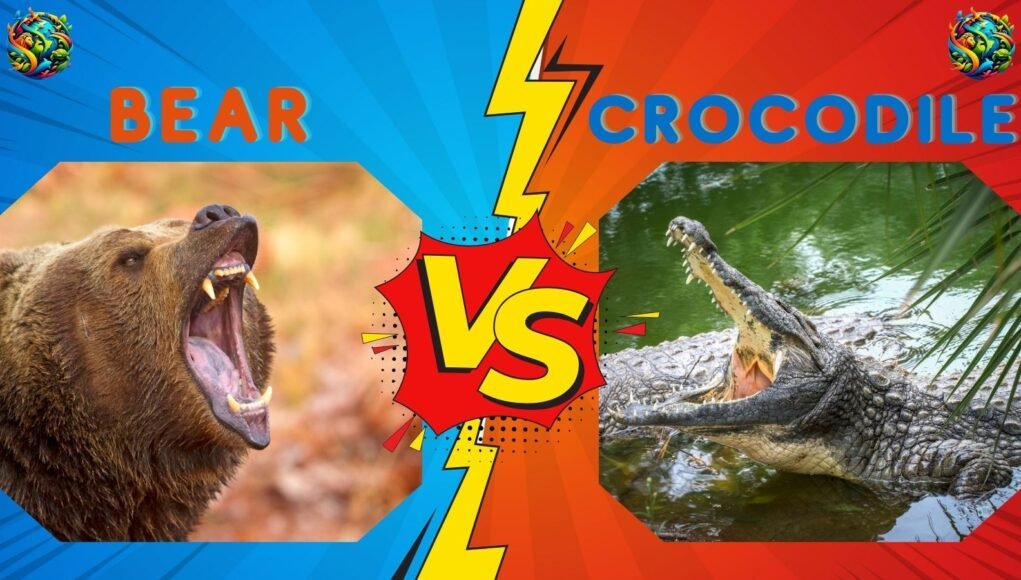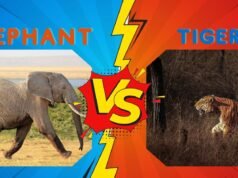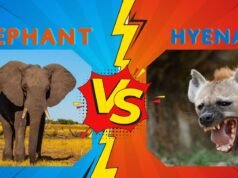Bear vs Crocodile: A Ruthless Clash of Strength, Bite Force, and Survival Instincts
The bear vs crocodile matchup is a thrilling clash between two apex predators from vastly different ecosystems. On one side, we have the bear, a powerful and versatile mammal known for its strength, intelligence, and adaptability. On the other side, we have the crocodile, a prehistoric reptile renowned for its brute strength, armored body, and deadly ambush tactics. This battle raises intriguing questions: Would the bear’s raw power and intelligence give it the upper hand? Or would the crocodile’s aquatic dominance and crushing bite prove too much for the bear? Let’s dive into this epic showdown and analyze the strengths and weaknesses of each contender.
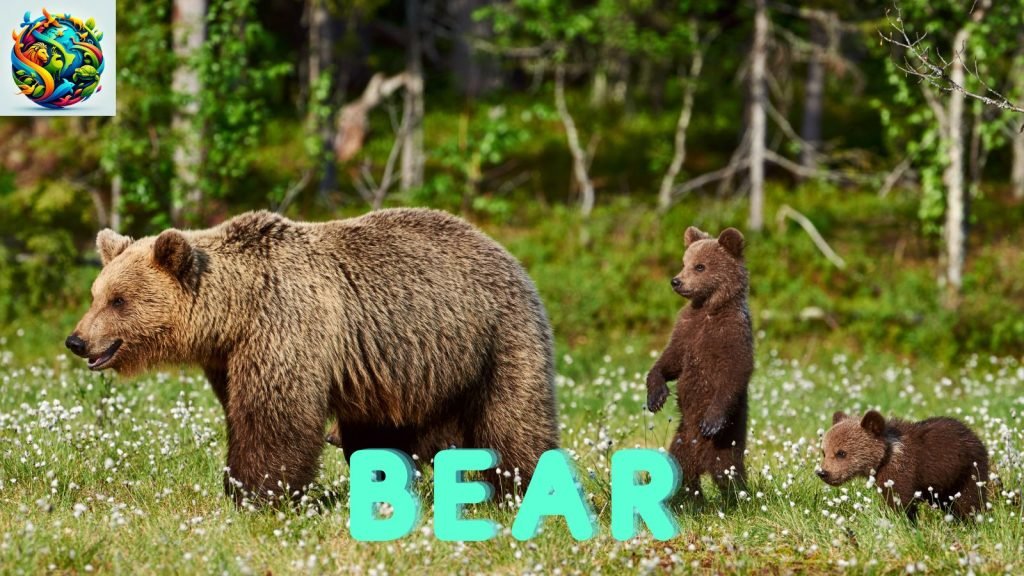
Basic Overview of the Two Competitors
The Bear
Bears are large, powerful mammals known for their strength, intelligence, and adaptability.
- Scientific Name: Ursus spp. (e.g., Brown Bear: Ursus arctos)
- Size: Bears vary in size depending on the species, but the largest, such as the Kodiak bear, can weigh between 330 and 1,500 pounds (150–680 kg) and stand 5 to 10 feet tall when upright.
- Habitat: Bears are found in forests, mountains, tundras, and coastal areas across North America, Europe, and Asia.
- Diet: Bears are omnivorous, feeding on berries, fish, small mammals, and occasionally large prey like deer or moose.
- Social Behavior: Bears are mostly solitary animals, except during mating season or when raising cubs.
- Speed: Bears can run at speeds of up to 35 miles per hour (56 km/h) in short bursts.
- Bite Force: Bears have a bite force of approximately 1,200 psi (Brown Bear).
- Defensive Traits: Bears have thick fur, a layer of fat, and powerful forelimbs with sharp claws for defense and attack.
The Crocodile
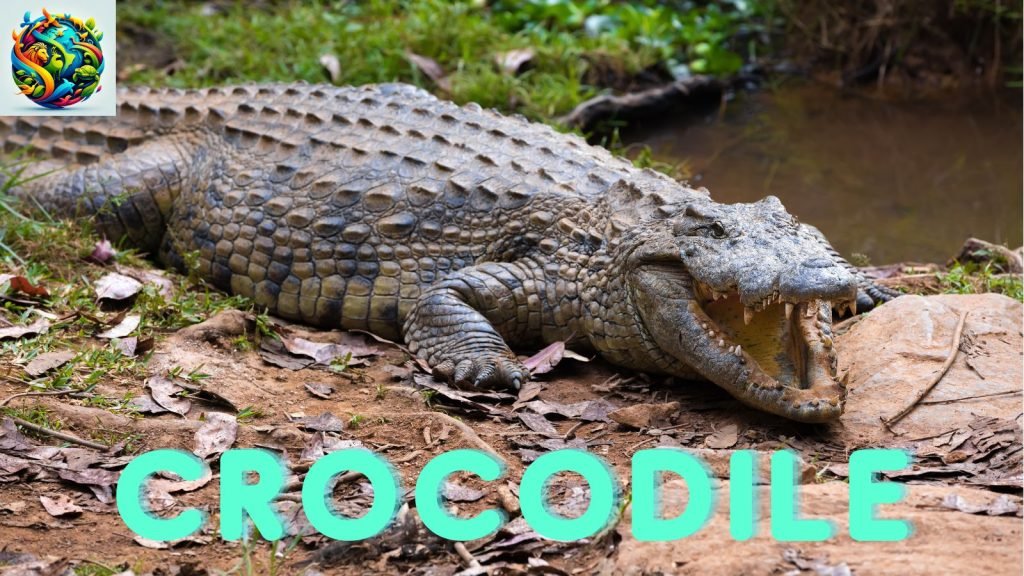
The crocodile is a living relic of the dinosaur age, known for its incredible strength, armored body, and deadly ambush tactics.
- Scientific Name: Crocodylus spp. (e.g., Saltwater Crocodile: Crocodylus porosus)
- Size: Crocodiles can weigh between 500 and 2,000 pounds (227–907 kg) and measure 10 to 20 feet in length.
- Habitat: Crocodiles are found in rivers, swamps, lakes, and coastal areas in tropical and subtropical regions.
- Diet: Crocodiles are carnivorous and prey on fish, mammals, and even large animals like zebras and buffalo.
- Social Behavior: Crocodiles are mostly solitary but may gather in groups for basking or feeding.
- Speed: Crocodiles can move at speeds of up to 22 miles per hour (35 km/h) on land and 25 miles per hour (40 km/h) in water.
- Bite Force: Crocodiles have the strongest bite force in the animal kingdom, ranging from 3,700 to 5,000 psi.
- Defensive Traits: Crocodiles have thick, armored skin, incredible jaw strength, and a powerful tail for defense and attack.



Key Comparisons: Bear vs Crocodile
1. Size & Strength
Both animals are incredibly strong, but crocodiles are generally larger and heavier. The largest crocodiles can weigh up to 2,000 pounds, while the largest bears weigh around 1,500 pounds. However, bears are more agile on land and have powerful forelimbs for grappling.
Winner: Crocodile (in size), Bear (in agility and versatility)
2. Speed & Agility
Bears are faster and more agile on land, capable of running at speeds of up to 35 miles per hour. Crocodiles, while fast in short bursts, are slower and less agile on land but are highly efficient in water.
Winner: Bear (on land), Crocodile (in water)
3. Intelligence & Strategy
Bears are highly intelligent and adaptable, using problem-solving skills and strategic thinking to hunt and defend themselves. Crocodiles, while not as intelligent, are highly effective ambush predators, using patience and stealth to catch prey off guard.
Winner: Bear
4. Offensive & Defensive Weaponry
Crocodiles have the strongest bite force in the animal kingdom, ranging from 3,700 to 5,000 psi, and thick, armored skin for protection. Bears have a bite force of approximately 1,200 psi and powerful forelimbs with sharp claws for slashing and grappling.
Winner: Crocodile (bite force and armor), Bear (claws and grappling ability)
5. Fighting Style
Bears rely on their strength, claws, and intelligence to overpower opponents. They can stand on their hind legs to intimidate and strike with their forelimbs. Crocodiles use their powerful jaws and tail to crush and thrash their prey, often employing a “death roll” to incapacitate victims.
Winner: Crocodile (in water), Bear (on land)
Bear vs Crocodile Fight Scenarios:
Scenario 1: One-on-One Battle on Land
In a one-on-one battle on land, the bear would use its speed and agility to try to outmaneuver the crocodile. It would attempt to deliver powerful blows with its forelimbs and claws, targeting the crocodile’s eyes or soft underbelly. The crocodile, while slower on land, would use its powerful jaws to strike back. However, the bear’s agility and strength would likely give it the upper hand, allowing it to overpower the crocodile.
Winner: Bear
Scenario 2: One-on-One Battle in Water
In water, the crocodile has a clear advantage. Crocodiles are highly adapted to aquatic environments and are incredibly strong swimmers. The bear, while a capable swimmer, would struggle to match the crocodile’s strength and agility in water. The crocodile would likely ambush the bear, using its powerful jaws and death roll to quickly overpower it.
Winner: Crocodile
Scenario 3: Bear vs Crocodile Pack
In a scenario where a bear faces multiple crocodiles, the outcome would be more balanced. Crocodiles are solitary animals but may cooperate when competing for food. While the bear could take down a few crocodiles, it would eventually be overwhelmed by their numbers and powerful jaws.
Winner: Crocodile Pack
Final Verdict: Bear vs Crocodile Who Would Win?
After analyzing every aspect of the bear vs crocodile battle, here’s the final breakdown:
| Category | Winner |
|---|---|
| Bear vs Crocodile Strength & Size | Crocodile |
| Speed & Agility of Bear vs Crocodile | Bear (on land), Crocodile (in water) |
| Intelligence & Strategy of Bear vs Crocodile | Bear |
| Bite Force | Crocodile |
| Weapons (Claws, Strength) | Bear (claws), Crocodile (jaws) |
| Bear vs Crocodile Combat Strategy | Bear (strength and intelligence), Crocodile (ambush and death roll) |
| Bear vs Crocodile Survival Skills | Bear (versatility), Crocodile (aquatic dominance) |
Ultimate Winner: Bear on Land, Crocodile in Water
- In a one-on-one battle on land, the bear wins 70% of the time due to its agility, strength, and intelligence.
- In water, the crocodile wins 90% of the time due to its aquatic dominance and powerful bite.
- In a pack scenario, crocodiles could overwhelm the bear with their numbers and coordinated attacks.
Conclusion
The bear’s strength, intelligence, and versatility make it a dominant predator on land. However, the crocodile’s aquatic dominance, armored body, and crushing bite give it a significant advantage in water. While the bear is likely to dominate in most land-based encounters, the crocodile’s unique adaptations and ambush tactics make it a formidable opponent in its natural habitat. This matchup highlights the fascinating dynamics of predator interactions and the importance of both individual strength and environmental adaptation in the animal kingdom. Whether it’s the bear’s raw power or the crocodile’s deadly ambush, this battle reminds us of the incredible diversity of nature’s apex predators.

